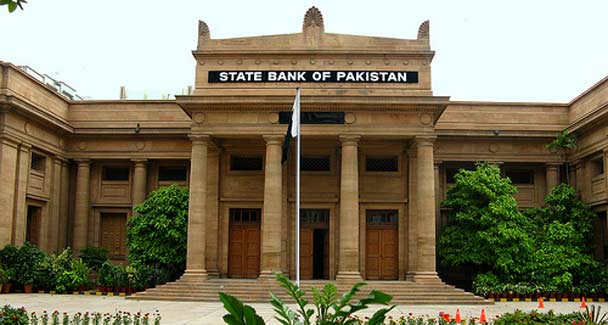ISLAMABAD: The State Bank of Pakistan voiced hope the current account deficit could be reined into a manageable level in the next few months because of actions taken to address slide in foreign exchange reserves.
Sources revealed, a working paper submitted by the central bank in response to recommendations of Senate of Standing Committee on Finance underlined several measures to manage the risks emerging from external sector, reported Business Recorder.
To resolve these challenges, the government and SBP has taken various steps to ensure these risks are curbed. Firstly, the government is providing uninterrupted power supply to export segment, especially textile sector for boosting exports.
Also, LNG imports will help reduce the cost of doing business and export package of Rs180 billion had been announced in January 2017.
For non-textile sector, the government also announced a duty drawback package for surgical, leather, sports products which allows exporter to get a 50 percent rebate unconditionally, while the remainder is contingent on its export performance.
On the trade front, the government has worked to get market access to various markets like China, Russia, South Africa, Hong Kong, Indonesia and Egypt besides Middle East countries. The scrapping of an 8-year old ban on Pakistan poultry products by UAE opened a huge market for meat exporters of Pakistan.
To rein in imports, the central bank enforced 100 percent non-cash margin requirement on non-essential consumer items and furthermore regulatory duties were levied on over 731 non-essential items.
SBP believes that these measures would rein in current account deficit to a manageable level besides the recovery in exports and curb sliding of foreign exchange reserves.
The central bank’s foreign currency reserves fell $5.257 billion from $18.925 billion at end of October 2016 to $13,668 billion by 10th November 2017. The primary reason for the fall in forex reserves is due to rising current account deficit, decreased foreign flows. Current account deficit widened to $12.4 billion during FY 2016-17, compared to $4.9 billion in FY 2015-16.
This was attributable to strong rise in productive imports, declining fall exports besides a small dip in workers remittance.




